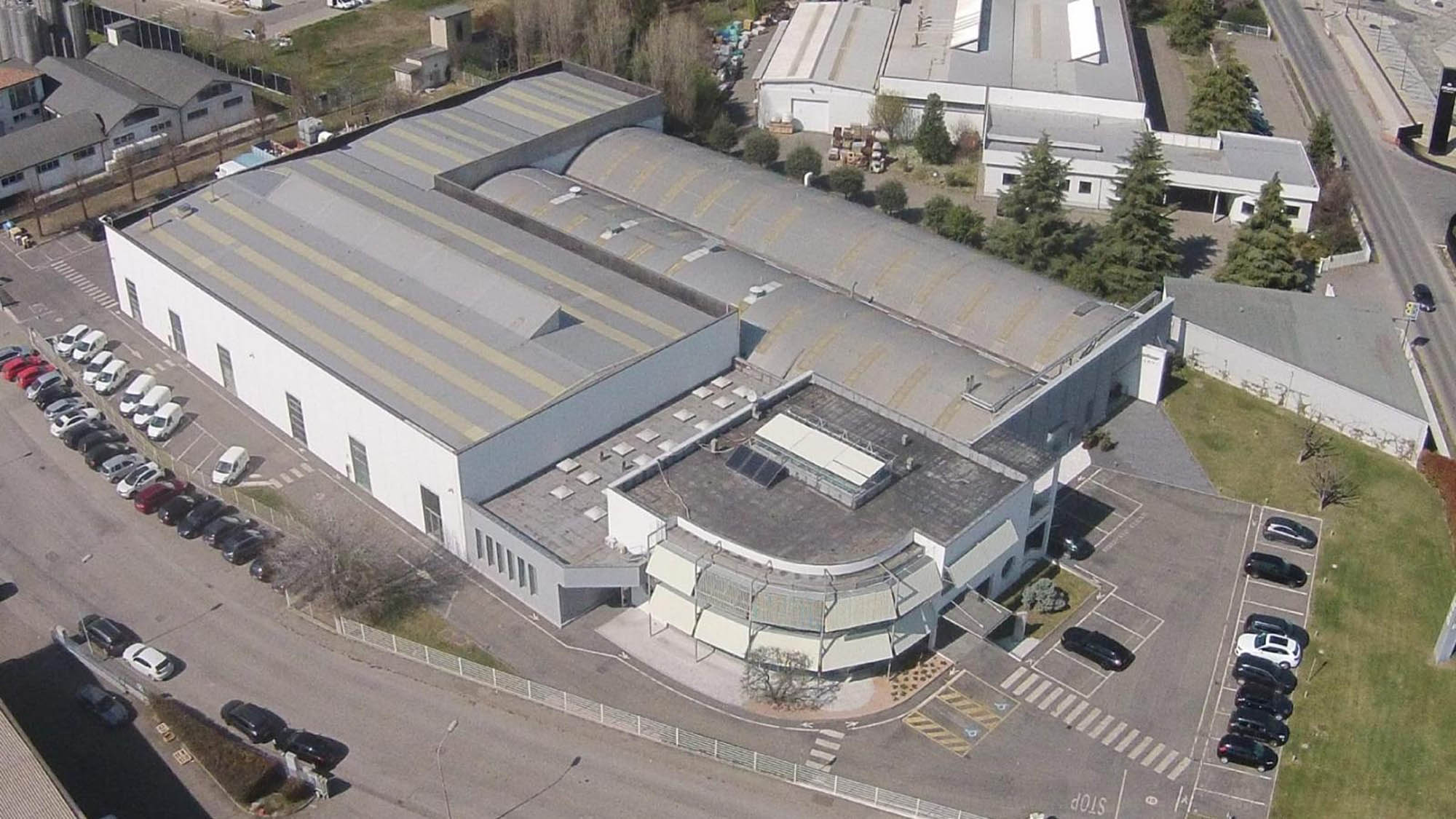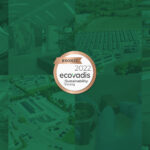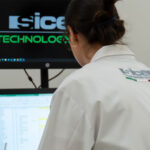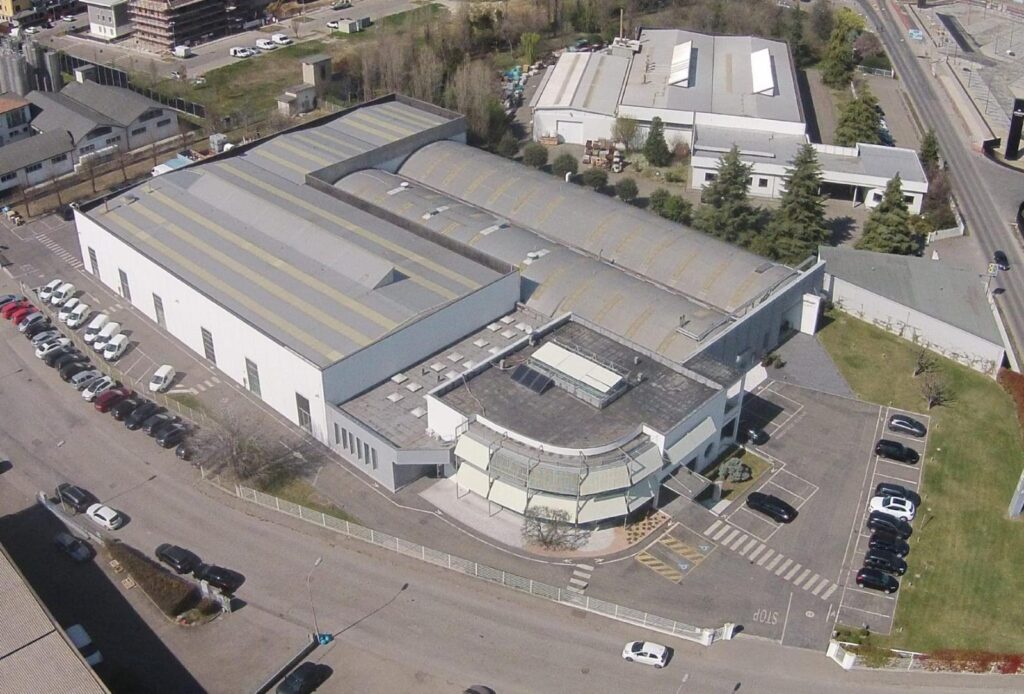
Italian ceramics closes 2023 in sharp contraction
The Italian ceramic tile industry closed in 2023 with a clear slowdown on production, sales and export volumes. A pre-announced and physiological decline in turnover marked an abrupt reversal from the record recorded in 2022. Production has been reduced by 90 million square meters; demand declined sharply on all continents, as highlighted during the press conference last December 18 at the headquarters of Sassuolo, organized by Confindustria Ceramica.
A negative spiral, therefore, of which the data of the final balance of 2023 elaborated by Prometeia indicate a drastic decrease in the sector of the ceramic tiles, with sales volumes around 362 million square meters (-19.3% regarding 2022), with exports equal to 277 million square meters (-22.1%) and domestic sales close to 85 million square meters (-8.7%). This contraction has affected all major world markets, especially Western Europe and North America.
The President of Confindustria Ceramica, Giovanni Savorani, comments: “The current situation is clearly reflected by four issues: the ECB’s interest rates have remained at a record level of 4.5%, influencing upward the entire structure of the interest rates of our companies; ceramic sales decreased by 20%; the production has been reduced by 90 million square meters and payroll subsidies for 6,000 employees. We face a crisis that involves all the markets, starting from the main foreign countries of our export”. Savorani continues: “In order to avoid an excessive storage accumulation, many companies have extraordinarily suspended production during the year and even now, with a fairly general stop until the middle of January 2024 and the risk of continuing in the following weeks.” In this context, some companies have started investments for the redevelopment of production lines, in addition to the ordinary maintenance of plants.
The ceramics has its ups and downs that companies have learned to know and to face, and the fall of 2023, although obviously not desirable, was in a way expected. But now we see the record numbers that characterized the Italian ceramic industry in 2022.
Double-digit growth for ceramics in Italy in 2022
Although the Italian ceramic tiles industry has had to face strong cost increases, 2022 has brought a substantial confirmation of the volumes of production, sales and exports recorded in 2021. According to the final balance elaborated by Prometeia and presented by Confindustria Ceramica, the total sales have been attested around 458 million square meters (+ 0.7% regarding 2021 and + 13% on 2019); of these, 364 million square meters are exported (+ 0.2%), while beyond 93 million square meters are sold on the domestic market (+ 2.6%).
The Italian market has absorbed 20% of the total, while 48% has been destined to the markets of the European Union and 32% to those outside the EU. Sales grew in the Gulf and Far East, remaining stable in Western Europe, the Balkans and Latin America, while markets in Eastern Europe and NAFTA declined.
The general increase of the prices in order to compensate for the increase of the production costs has led to an increase of 16.4% of the total revenues, from €6.2 billion in 2021 to approximately €7.2 billion in 2022, with 6 billion euros export and 1.2 billion euros domestic market.
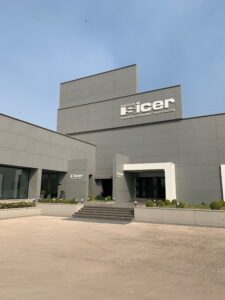
The 2023 of Sicer
Despite the challenges encountered during 2023, Sicer Group has managed to maintain positive results, demonstrating its resilience and adaptability. This success was partly due to the continued growth of some markets, with India at the forefront. In this context, the manufacturer of raw material for ceramic companies of Ubersetto has inaugurated a new location in the Indian territory, a tangible sign of its commitment and confidence in the potential of this market.
In 2023 Sicer Group made other significant progress towards sustainability, innovation and environmental safety. The renewal of the ESG bronze certification has emphasized the company’s attention to ethical and responsible business practices. In addition, Sicer has continued to invest in renewing its technologies and updating technical staff through training courses, thus ensuring constant excellence aimed at meeting the needs of the constantly changing ceramic tile market. Among the products, at Cersaie 2023 Sicer presented SILKY ROCK SURFACE, an innovative anti-slip finish for safe flooring but also of great aesthetic impact.
The ESG bronze certification renewed by ECOVADIS to Sicer
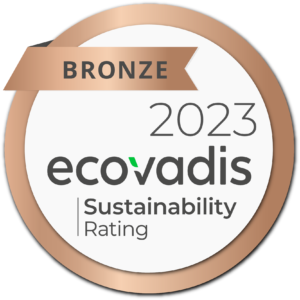
EcoVadis® is one of the leading global platforms for business sustainability assessment. Through scoring, it offers companies significant visibility in the face of a wide range of potential customers who are increasingly interested in the sustainability of their supply chains.
Its assessment model, based on globally recognized standards such as the Global Reporting Initiative (GRI), the United Nations World Pact (UNGC), and ISO 26000, is managed by an international scientific committee. It covers four macro-areas: environment, working practices and human rights, ethics and sustainable supply. Through a detailed questionnaire, EcoVadis evaluates the performance of suppliers in each of these areas, providing a complete picture of their business practices related to sustainability.
The renewal of ESG certification, resulting in BRONZE, also for 2023, confirms Sicer’s commitment to improve its performance in the sustainable and social field. This recognition not only enhances the business reputation, but also demonstrates to stakeholders, customers and partners that Sicer is a company committed to play its part in addressing global sustainability challenges.
State-of-the-art technologies by laboratories of the manufacturer of raw materials for ceramic companies
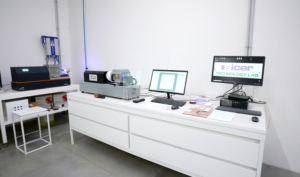
The state-of-the-art equipment used by Sicer for raw material analysis are a fundamental pillar of its business strategy, enabling an approach based on precision, innovation and quality in the production processes of the ceramic industries.
The Pendulum, the Thermo Haake Rheometer, the Mastersizer 3000, the Electron Microscope, the Optical Dilatometer, the Diffractometer, the Turbiscan Tower are some of the equipment used by Sicer’s laboratories to study the subjects and develop the products of the future.
Continuing training of Sicer technical staff
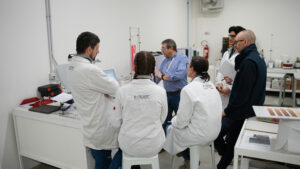
The continuous training of laboratory technicians is essential to maintain a competitive advantage and to remain at the forefront of the ceramic industry. At Sicer, this concept is deeply rooted in corporate culture and it is reflected in tailor-made training programs offered to technical staff.
Sicer’s laboratory technicians represent the lifeblood of our research and development. Through specialized courses and workshops, they are constantly updated on the latest technologies, analysis methodologies and industry regulations. This investment in professional growth not only enriches their individual skills, but also results in continuous innovation and greater efficiency in production processes.
Continuing training is not only an investment in staff, but also a commitment to our customers and partners. The constant search for perfection and technical excellence allows Sicer to offer innovative products and tailor-made solutions that meet the most demanding needs of the market.


